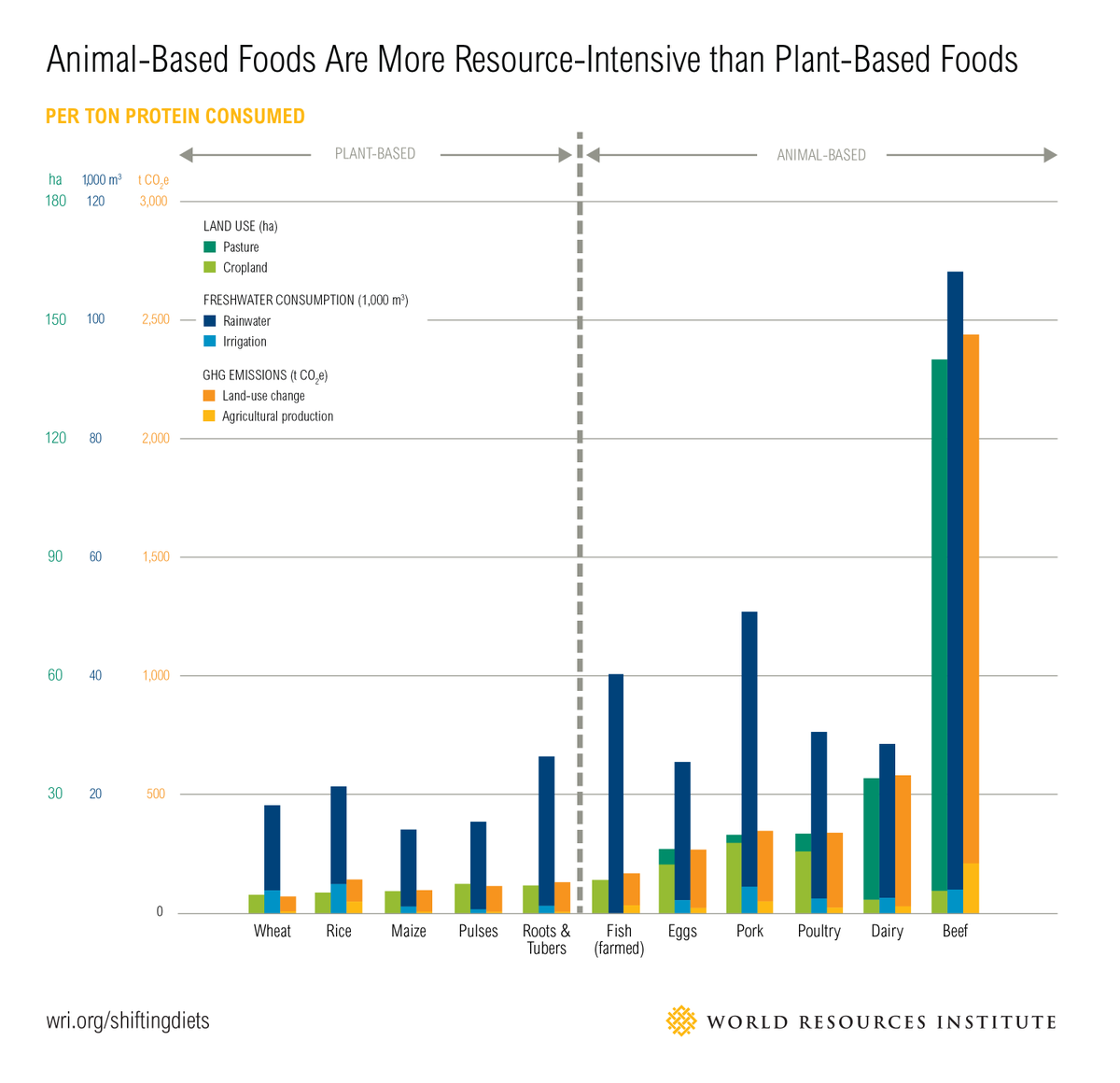Here's my article on why both the climate and ecological emergencies demand an urgent switch to a plant-based diet: theguardian.com/commentisfree/…
And here's the argument I had with a beef farmers on plant vs animal diets, on Channel 4 news last night: channel4.com/news/george-mo…
When you see figures like this, you wonder what there is left to discuss. The land and water demand and greenhouse gas emissions of animal protein production are so much greater than those of plant protein that these debates are really just a matter of science vs shouting 

Link here: wri.org/resources/char…
PS, there have been quite a few comments about the bodies of the contributors on last night's Channel 4 debate. Please stay kind, and stick to the science. Thanks.
People tell me "the real problem isn't diet, it's population."
Human population growth does of course contribute to the ecological disasters caused by farming.
BUT: Human pop growth is 1.2%
Livestock pop growth is 2.4%
That's the real population crisis
theguardian.com/commentisfree/…
Human population growth does of course contribute to the ecological disasters caused by farming.
BUT: Human pop growth is 1.2%
Livestock pop growth is 2.4%
That's the real population crisis
theguardian.com/commentisfree/…
By 2050 the world’s living systems will have to support about 120m tonnes of extra humans, and 400m tonnes of extra farm animals. The switch to meat eating as people become richer is an ecological catastrophe.
• • •
Missing some Tweet in this thread? You can try to
force a refresh




